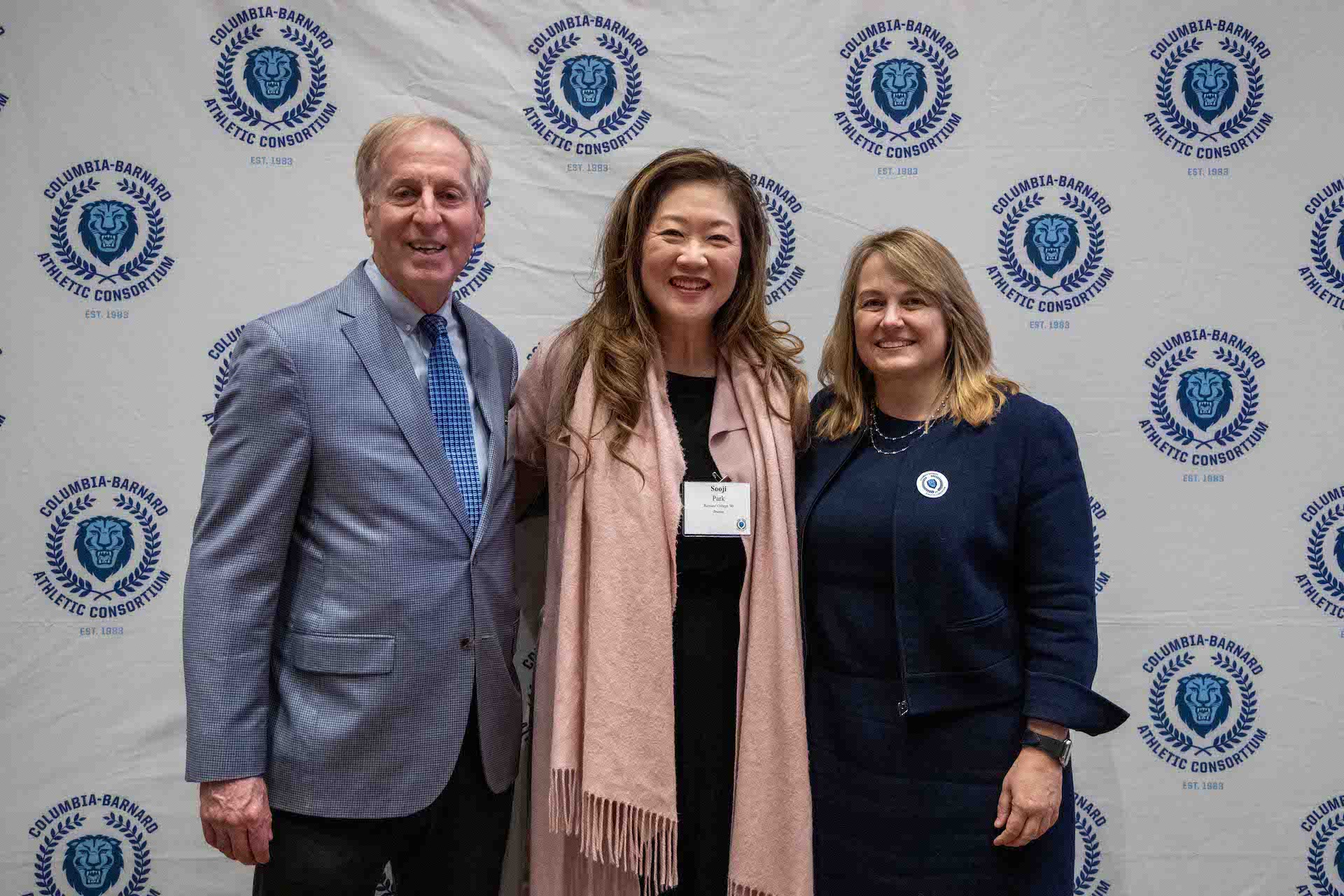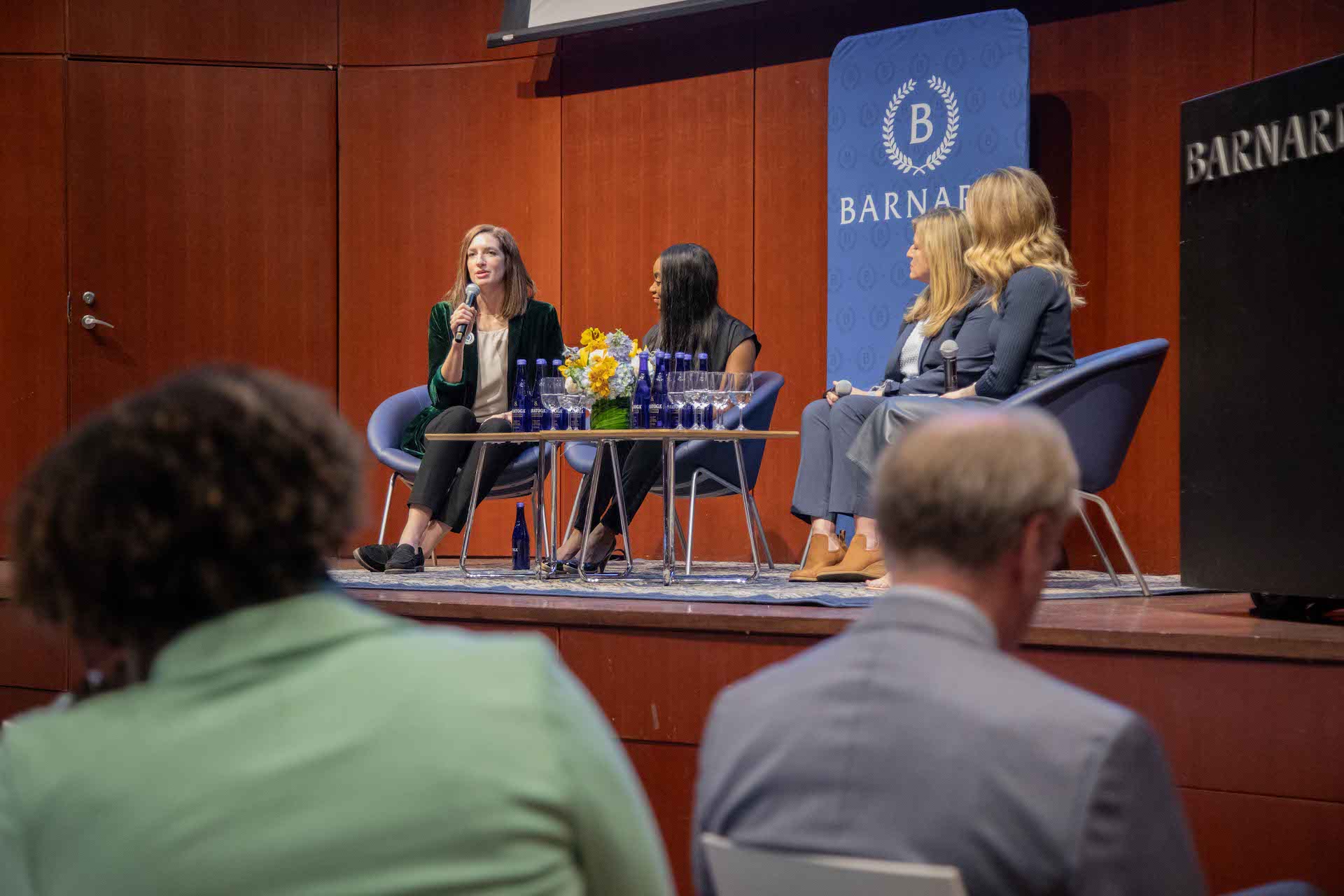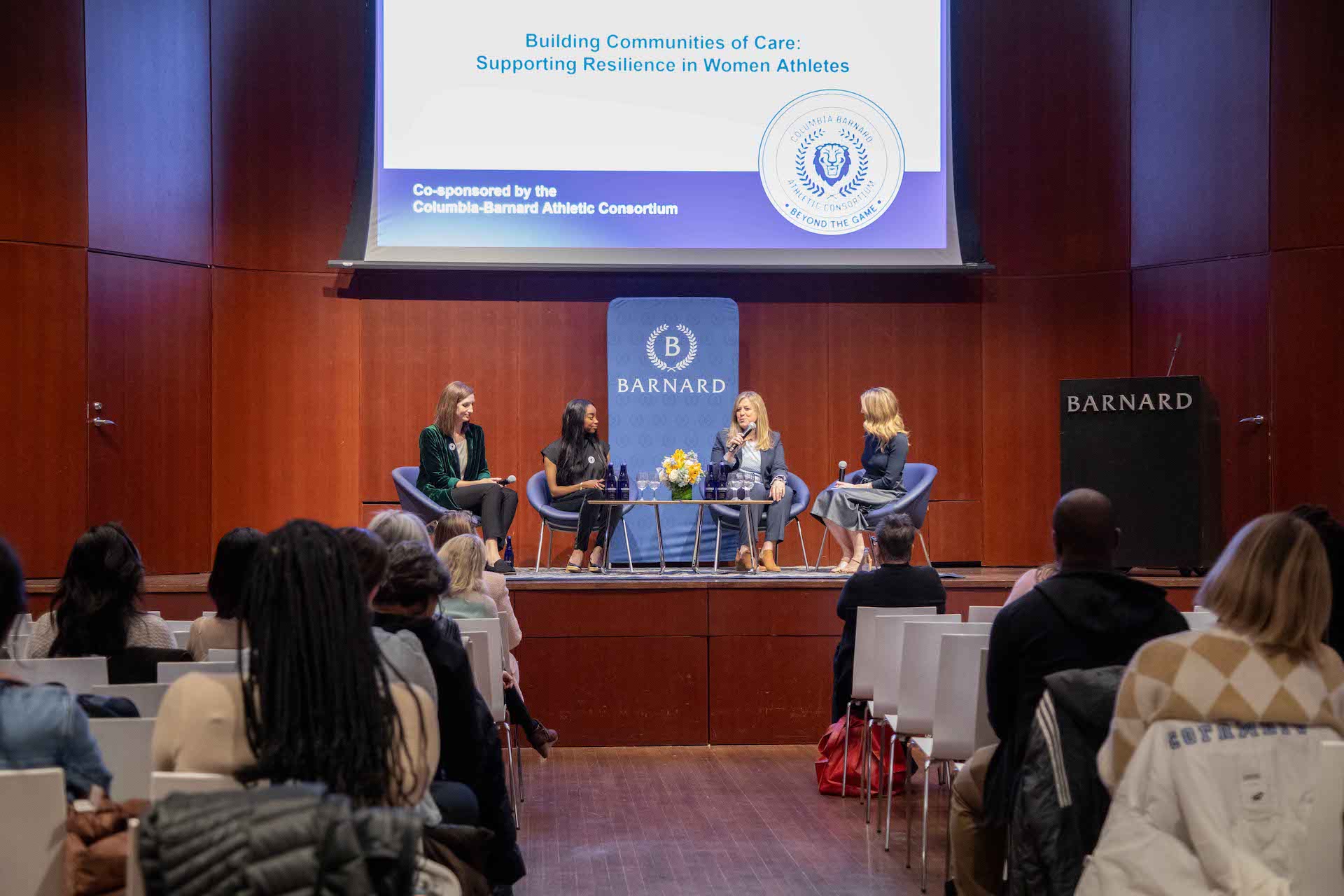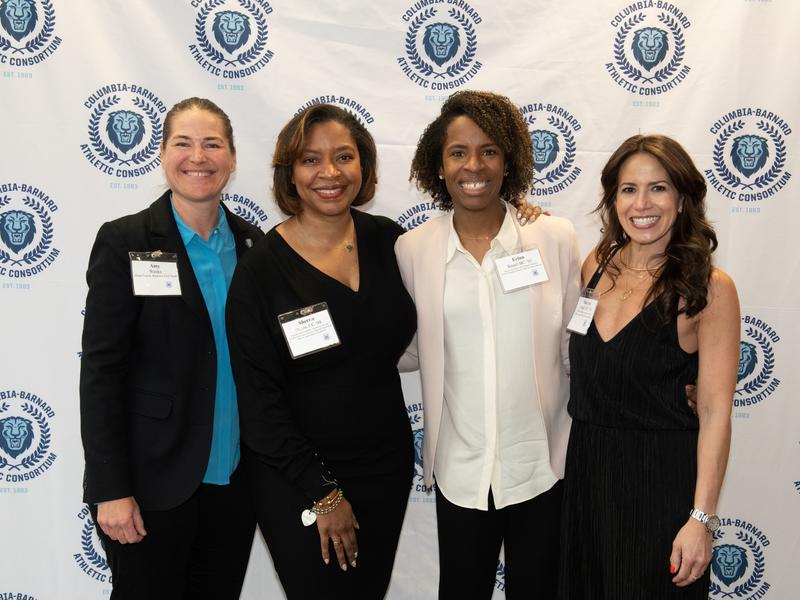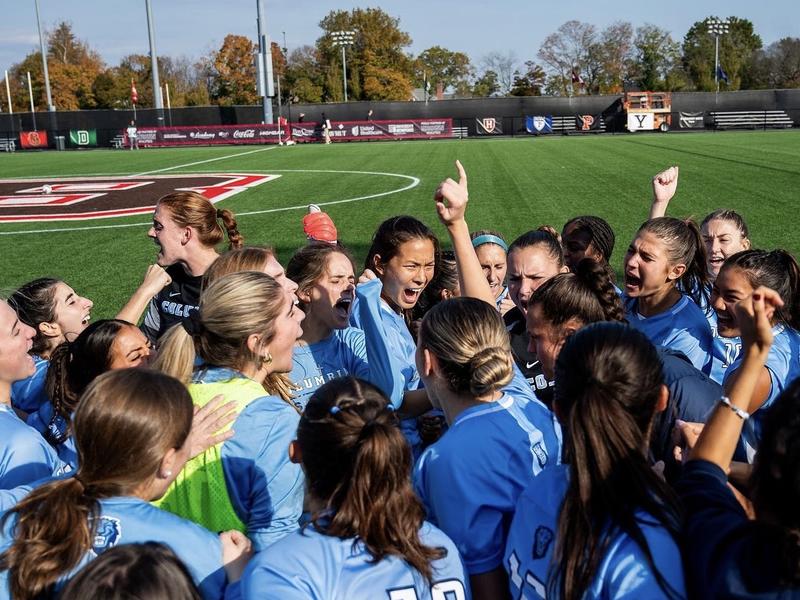On the heels of yet another stellar women’s basketball season — one that took the team to March Madness for the first time in its history — Barnard hosted its annual Beyond the Game panel on March 25, focused on fostering a healthy community. Peter Pilling, Columbia’s Campbell Family Director of Intercollegiate Athletics and Physical Education, called attention to the fans and the power that sports have to bring communities together at the Columbia-Barnard Athletic Consortium-sponsored event.
“We all saw the tremendous support that we have for our women’s basketball program,” said Pilling. “It’s really powerful the impact that sports can have on our respective communities.”
After ticking off a list of recent successes — which ranged from the team’s historic season to medals won by the fencing team at the NCAA Regionals to the soccer team’s runner-up status in the Ivy League Tournament — President Laura Rosenbury introduced the event’s theme: “Building Communities of Care: Supporting Resilience in Women Athletes.”
“[With] more than 60 student athletes at Barnard competing through the Columbia-Barnard Athletic Consortium ... it’s so important that we discuss athletes’ well-being so that we can continue to provide the support they need to compete and perform at the highest levels,” said Rosenbury.
This sentiment reflected “Communities of Care,” a foundation principle President Rosenbury introduced in her inaugural address and the inspiration for the new Francine LeFrak Foundation Center for Well-Being.
The panel, moderated by NY1 weekend anchor Stef Manisero, included Tracey Bartholomew, head coach of Columbia women’s soccer; Lauren Dwyer CC’11, a former member of the women’s basketball team and senior director of growth and innovation at the WNBA; and swimmer Trudi Patrick ’17, now a global product lead at Google.
The excerpts below from this year’s panel have been edited for clarity and flow.
Coaching Mindfully
Manisero launched the discussion by providing the American Psychological Association’s definition of resilience: “the process of adapting well in the face of adversity, trauma, threats, or significant sources of stress.” Tracey Bartholomew expanded on the topic:
“Being a psychology major, I learned quick and fast that every single person, everyone in this room, has things going on in their life, and everyone has their own journey. And I think I took that into my coaching. Obviously, as a coach, you’re creating environments that push [players] in order to achieve great things, but you need to know that a community of care is in place so they can also have moments of vulnerability. We need to create a team that can pick you up when you’re down.
“Doing hard things, handling that stress, and our ability to manage that gets better over time. We have to convince our athletes that you can embrace that and you can handle it. It’s an evolution. But also, if you’re struggling, there’s a moment where you can have an out. There are times when you can tell that someone is just not okay. That’s when you say, ‘Let’s just have a moment, it’s all right, we can deal with it. Tomorrow’s a new day.’”
Breakthroughs on the Team and in Life
Swimmer Trudi Patrick ’17 spoke about the importance of learning how to bounce back and how seeking support from teammates can translate into future successes.
“I think back to my freshman year, I was running on a high, I was training really well, but those results were not showing in the meets. My coaches pulled me aside and said that I should see the sports psychologist. I’m so grateful that I did that. In those sessions, I learned that I was actually a little afraid of my own success. And that was a mental barrier that I needed to overcome to put the physical and mental together. When I did that, I broke a 10-year-old school record in the 200-yard butterfly. It was really just me learning to believe in myself and learning to believe that I was worthy of attaining that level of success, [and] it definitely carries over into my professional endeavors. Even now, it’s still just believing that I’m worthy and that I should be a part of these conversations and leading the way.
“We actually had gone undefeated for the first time in program history in the Ivy League, and it was just such a team effort. Every meet we were backing each other up. There was nobody sitting; we were all just cheering for each other, we played off each other. And that’s the best way. That really resonates with me being in the professional sphere, of knowing the value of finding your teammates and finding those people who are in your corner, finding those mentors, those coaches who can support you, and who you can support.”
Setting and Resetting Goals
Lauren Dwyer CC’11 said that while it makes sense to shoot for the championship at the start of the season, if it becomes evident that winning the championship is not in the cards, then it’s time to reset your goals, adjust, and move forward.
“You can reframe goals. Ask yourself, ‘What are we still working towards? If we aren’t gonna get that championship, what are we still building towards? What are we still playing for?’ I want to push myself, but if I don’t get there, that’s okay. There’s still something else to play for. I think that’s what [Duke coach] Kara Lawson was saying with ‘Handle Hard Better.’ Things are not going to get easier. If they’re easy, then you’ve got to go to the next level. And so, if you want to keep pushing yourself, it’s always gonna be hard, and there’s a kind of acceptance and an understanding that it’s okay if you fall short. It’s okay to keep building towards something else and to keep looking for success in different ways.”
